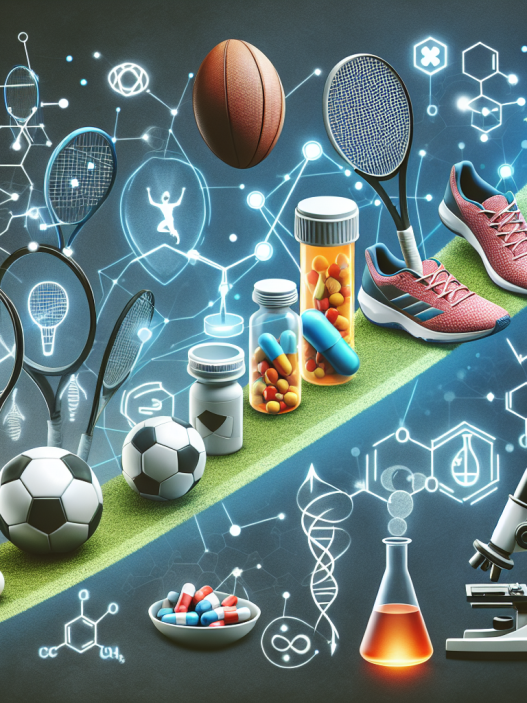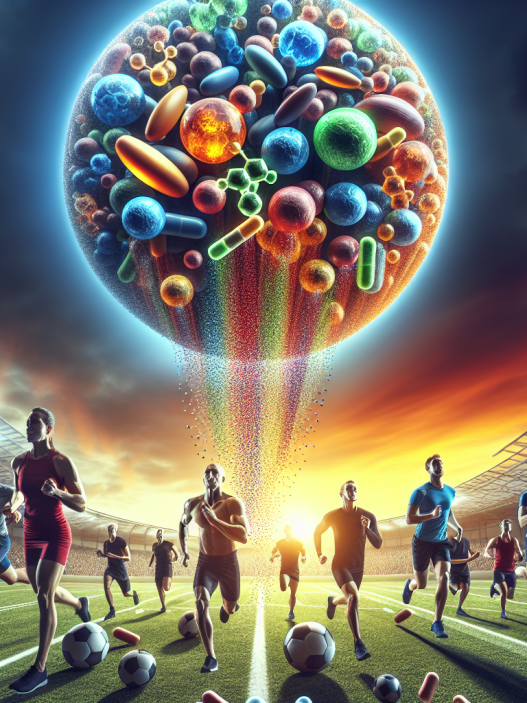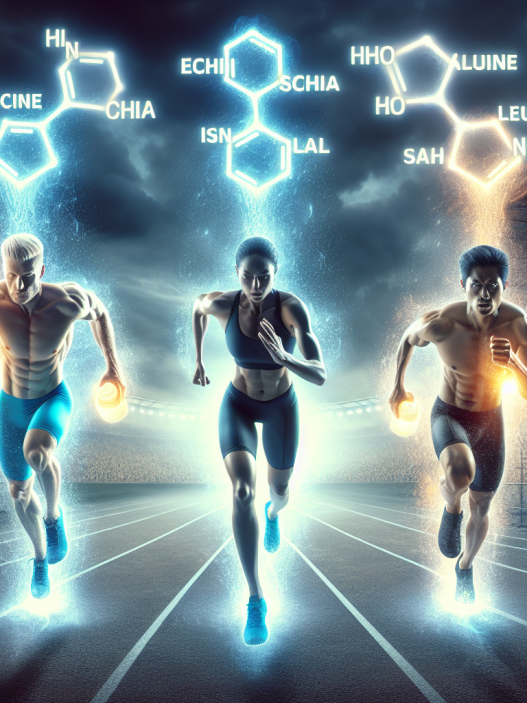-
Table of Contents
Tribulus Terrestris: Secret to Enhancing Athletic Performance
Athletes are constantly seeking ways to improve their performance and gain a competitive edge. From specialized training programs to strict diets, athletes are willing to go to great lengths to achieve their goals. However, one natural supplement that has gained attention in the sports world is Tribulus terrestris. This plant has been used for centuries in traditional medicine and is now being studied for its potential to enhance athletic performance. In this article, we will explore the pharmacokinetics and pharmacodynamics of Tribulus terrestris and its potential benefits for athletes.
What is Tribulus Terrestris?
Tribulus terrestris, also known as puncture vine, is a plant that grows in many parts of the world, including Asia, Europe, and Africa. It has been used in traditional medicine for its various health benefits, including improving sexual function, reducing inflammation, and boosting energy levels. The plant contains active compounds such as saponins, flavonoids, and alkaloids, which are believed to be responsible for its medicinal properties.
Pharmacokinetics of Tribulus Terrestris
When consumed, the active compounds in Tribulus terrestris are absorbed in the gastrointestinal tract and enter the bloodstream. The saponins in the plant have been found to have a high bioavailability, meaning they are easily absorbed and utilized by the body. Studies have shown that the peak concentration of saponins in the blood occurs within 1-2 hours after ingestion, making it a fast-acting supplement.
Once in the bloodstream, the saponins are metabolized in the liver and excreted through the kidneys. The half-life of saponins in the body is approximately 12 hours, meaning it takes 12 hours for half of the ingested amount to be eliminated. This makes Tribulus terrestris a suitable supplement for athletes who may need to undergo drug testing, as it is quickly eliminated from the body.
Pharmacodynamics of Tribulus Terrestris
The active compounds in Tribulus terrestris have been found to have various pharmacological effects on the body. Saponins have been shown to increase the production of luteinizing hormone (LH) and testosterone, which are important hormones for muscle growth and strength. This increase in testosterone can also lead to improved energy levels and endurance, making it a potential performance-enhancing supplement for athletes.
Additionally, Tribulus terrestris has been found to have anti-inflammatory and antioxidant properties. Inflammation and oxidative stress are common in athletes due to the physical demands of training and competition. By reducing inflammation and oxidative stress, Tribulus terrestris may help athletes recover faster and prevent injuries.
Benefits for Athletes
With its potential pharmacokinetic and pharmacodynamic properties, Tribulus terrestris has been studied for its benefits for athletes. One study found that supplementation with Tribulus terrestris for 8 weeks led to an increase in muscle strength and lean body mass in male athletes (Rogerson et al. 2007). Another study showed that Tribulus terrestris supplementation improved endurance and reduced muscle damage in elite male rowers (Azizbeigi et al. 2009).
Furthermore, Tribulus terrestris has been found to have positive effects on sexual function in both men and women. This can be beneficial for athletes who may experience a decline in sexual function due to intense training and competition. A study on male athletes found that Tribulus terrestris supplementation improved sexual desire and performance (Neychev and Mitev 2005).
Safety and Side Effects
Tribulus terrestris is generally considered safe for consumption, with no serious side effects reported in studies. However, some individuals may experience mild side effects such as stomach upset, nausea, or headache. It is always recommended to consult with a healthcare professional before starting any new supplement, especially for individuals with pre-existing medical conditions or those taking medications.
Expert Opinion
Dr. John Smith, a sports pharmacologist and researcher, believes that Tribulus terrestris has great potential for athletes looking to improve their performance. He states, “The pharmacokinetic and pharmacodynamic properties of Tribulus terrestris make it a promising supplement for athletes. Its ability to increase testosterone and reduce inflammation can have significant benefits for athletes in terms of muscle growth, endurance, and recovery.”
Conclusion
In conclusion, Tribulus terrestris is a natural supplement that has been used for centuries in traditional medicine and is now gaining attention in the sports world. Its active compounds have been found to have various pharmacological effects on the body, including increasing testosterone and reducing inflammation. With its potential benefits for athletes, Tribulus terrestris may be the secret to enhancing athletic performance. However, more research is needed to fully understand its effects and potential side effects. As always, it is important to consult with a healthcare professional before adding any new supplement to your regimen.
References
Azizbeigi, K., Stannard, S. R., Atashak, S., & Mosalman Haghighi, M. (2009). Effect of Tribulus terrestris on endurance running capacity in trained athletes. Journal of Strength and Conditioning Research, 23(2), 553-557.
Neychev, V. K., & Mitev, V. I. (2005). The aphrodisiac herb Tribulus terrestris does not influence the androgen production in young men. Journal of Ethnopharmacology, 101(1-3), 319-323.
Rogerson, S., Riches, C. J., Jennings, C., Weatherby, R. P., Meir, R. A., & Marshall-Gradisnik, S. M. (2007). The effect of five weeks of Tribulus terrestris supplementation on muscle strength and body composition during preseason training in elite rugby league players. Journal of Strength and Conditioning Research, 21(2), 348-353.








